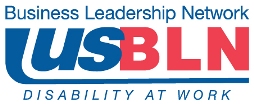Last Wednesday, the House overwhelmingly passed the Achieving a Better Life Experience (ABLE) Act, H.R. 647 by a vote of 404-17. The Senate is expected to take action this week, and with 74 Senate co-sponsors, it is likely that it will pass.
The ABLE Act allows individuals with disabilities and their families to save funds in an ABLE Account, a tax-free savings account that can go towards housing, transportation, home health, and other eligible expenses. This will allow individuals to accumulate assets without jeopardizing eligibility for Medicaid or Social Security benefits.
However, NCIL has significant concerns regarding who can access and open an ABLE Account. The ABLE Act has a lot of potential, but because of recent changes, only individuals who acquire a disability before the age of 26 are eligible for an ABLE Account. This means that individuals who acquire a disability at or after that age will not be helped by the ABLE Act at all.
We need Congress to hear from us and understand that the ABLE Act is important for all people with disabilities, regardless of when we acquire our disability! Accumulating assets is just as important for people who acquire a disability at or after the age of 26 to be able to improve their economic status and earn their way out of poverty.
Because of the advocacy of NCIL members and other disability rights groups, our concern regarding substantial gainful activity has been resolved, and individuals who meet the definition of disability are able to maintain an ABLE Account regardless of engagement in SGA. We need to make sure our voices are heard on this critical issue as well. The Senate needs to hear from you before they vote on the ABLE Act! Call your Senators and let them know that this needs to be fixed in the current (or future) Congress. Let them know that ALL people with disabilities should be eligible for an ABLE account!






